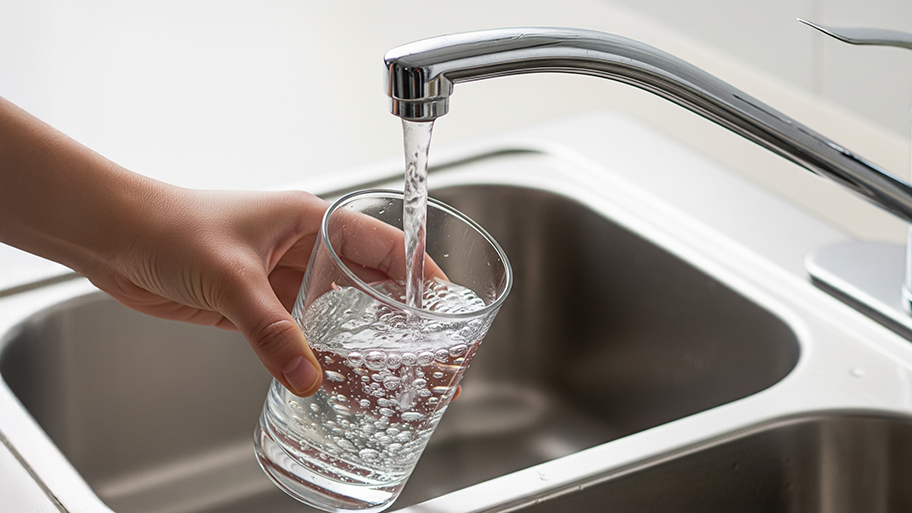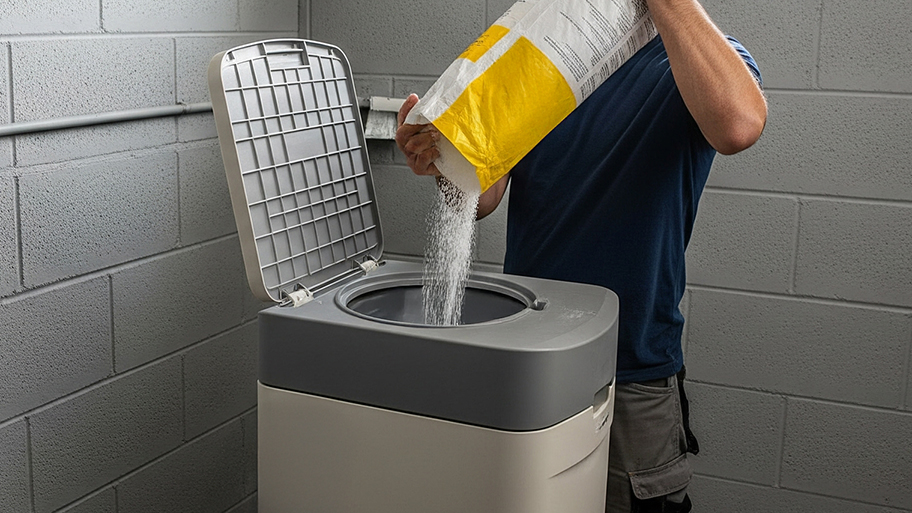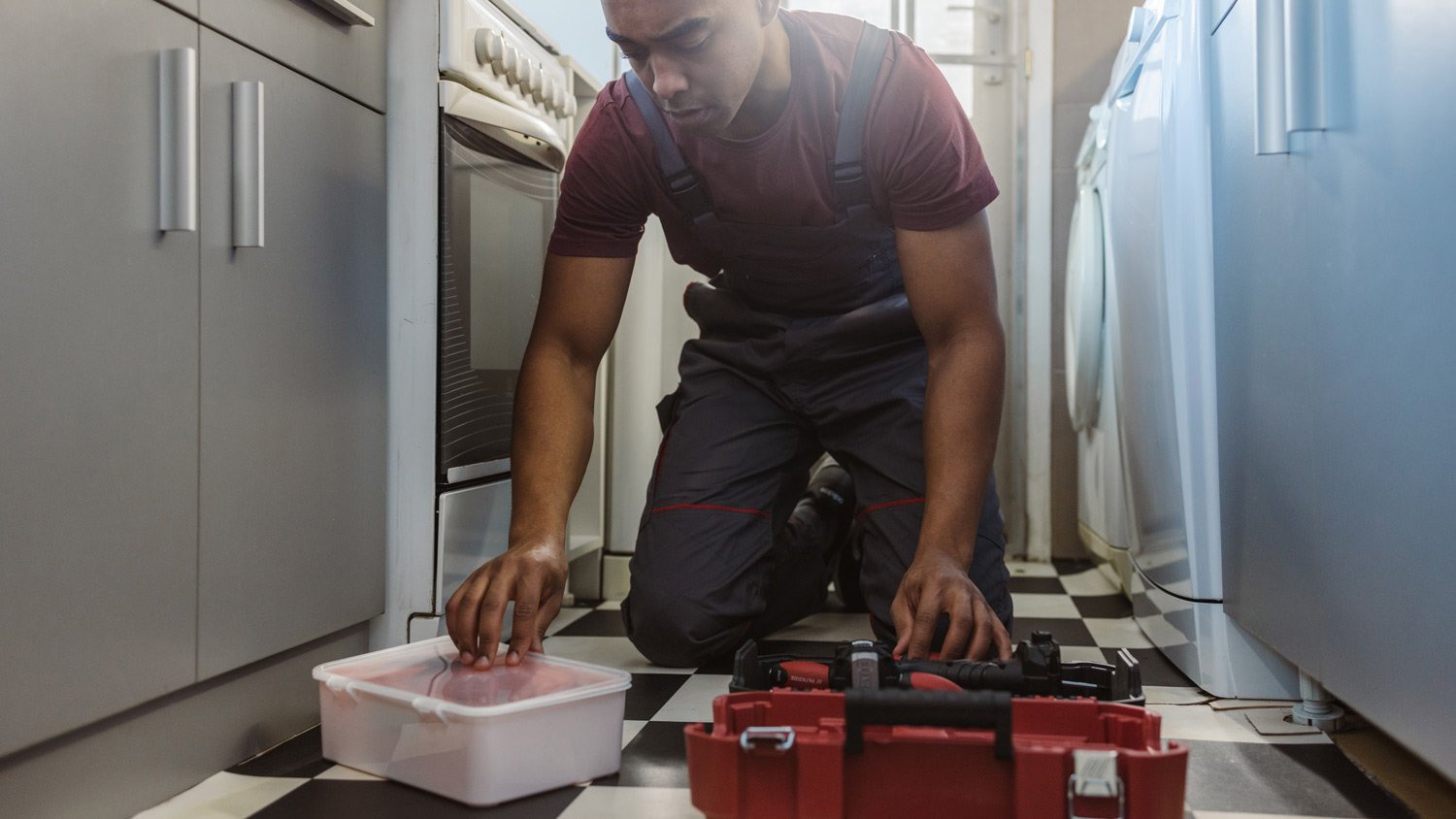
On average, a reverse osmosis water filter costs around $2,200, but there are a few variables that impact the total price. Learn about them in this guide.
Water softener service costs depend on your project and location. Check with a local pro for your specific job.
System type and water quality drive well water treatment systems cost.
Professional installation ensures safety and compliance.
Maintenance and filter replacement add to long-term costs.
Upgrading improves water quality and home value.
Compare system types to find the best fit for your needs.
Well water treatment systems cost an average of $2,300, with most homeowners spending between $1,200 and $3,600 for installation. The final price depends on the type of system, water quality issues, and installation complexity. Some systems may cost as little as $200 for basic filtration, while advanced multi-stage systems can exceed $8,000.
Let’s walk through the full range of costs and options, so you can make the right investment for your home’s water quality and safety.
The size and capacity of your well water treatment system play a major role in determining the overall cost. System size is measured in gallons per minute (GPM) or total gallons per day, and it should be matched to your household’s water usage and well output. A system that is too small may struggle to keep up with demand, while an oversized system can lead to unnecessary upfront and operating expenses.
For a typical residential home, most systems are sized between seven and 15 GPM. A family of four, for example, may require a system with a capacity of 10 GPM. Oversizing or undersizing your system affects both efficiency and cost. Oversized systems can cost more to purchase and maintain, while undersized systems may result in poor water quality or frequent maintenance.
| System Size/Capacity | Household Size | Cost Range |
|---|---|---|
| 5 GPM | 1–2 people | $400–$1,200 |
| 10 GPM | 3–4 people | $1,200–$3,500 |
| 15 GPM | 5+ people | $2,200–$5,800 |
| 20+ GPM | Large homes, farms | $4,500–$10,000 |
Matching system size to your actual usage is key to balancing performance and cost. Consult a professional to assess your water needs before making a final decision.
The type of well water treatment system you choose will have a significant impact on both the initial cost and long-term expenses. Each system targets specific water quality issues, such as sediment, hardness, iron, bacteria, or chemical contaminants. Some homes require only a single-stage system, while others benefit from multi-stage or combination solutions.
Sediment filters are often the most basic and least expensive, while reverse osmosis and multi-stage systems are at the higher end of the price range. The right system for your home depends on the results of a water quality test and your budget.
| System Type | Description | Cost Range | Pros | Cons |
|---|---|---|---|---|
| Sediment filter | Removes sand, dirt, and debris | $100–$800 | Simple, low maintenance, affordable | Limited contaminant removal |
| Carbon filter | Reduces chlorine, odors, chemicals | $250–$1,500 | Improves taste, reduces VOCs | Needs regular filter changes |
| Water softener | Removes hardness minerals (calcium, magnesium) | $800–$2,800 | Prevents scale buildup, extends appliance life | Ongoing salt/chemical costs |
| Iron filter | Removes iron and manganese | $900–$4,000 | Solves staining, improves taste | Higher initial cost |
| UV purification | Disinfects bacteria and viruses | $600–$2,200 | No chemicals, effective disinfection | Requires electricity, does not remove particulates |
| Reverse osmosis | Multi-stage filtration for broad contaminants | $1,500–$6,000 | Comprehensive contaminant removal | Wastes water, higher maintenance |
| Multi-stage | Combines several treatment methods | $2,500–$10,000 | Customizable, addresses multiple issues | Highest upfront cost, complex install |
Selecting the right system protects your home’s water supply and helps you avoid unnecessary expenses over time.
Where you live can have a noticeable impact on your well water treatment systems cost. Regional labor rates, material availability, and local regulations all play a part. For example, installation costs are often higher in urban areas due to increased labor rates, while rural areas may see higher delivery or travel fees. Water quality issues also vary by region, sometimes requiring specialized systems to address local contaminants.
The location of the system within your home—such as a basement, utility room, or outdoors—can affect installation complexity and cost. Tight spaces or difficult access points often require more labor.
The total cost of a well water treatment system is shaped by a combination of labor, permits, optional features, and several site-specific factors.
Professional installation is recommended for most well water treatment systems. Plumbers, water treatment specialists, and sometimes electricians will be involved, especially for complex or powered systems. Hourly labor rates range from $50 to $150, with minimum service fees of $100 to $300. Labor can account for 30% to 50% of your total project cost, depending on system complexity and your location. Upgrades or complex installations may require additional hours or specialized expertise, increasing the cost further.
Permits are sometimes required for well water treatment system installation, particularly if plumbing or electrical modifications are involved. Fees vary by region, ranging from $50 to $500. Inspections may also be required, which can add another $50 to $200. Skipping permits can result in fines and may void warranties or homeowners insurance coverage.
Optional features like smart monitoring, automatic backwashing, and remote alerts can add convenience but increase the initial investment by $200 to $1,500. Upgrading to a higher-capacity or multi-stage system, or integrating with existing plumbing or home automation, may also raise costs. Water quality testing before and after installation costs $50 to $300 per test.
Other factors can influence your final well water treatment systems cost:
System complexity, such as single vs. multi-stage or custom solutions
Accessibility of the installation site (tight spaces, remote wells)
Site preparation, including plumbing or electrical modifications
Delivery and removal of old equipment
Post-installation cleanup and disposal fees ($50 to $200)
Design or consultation fees for custom systems ($100 to $500)
Inspection costs for code compliance or water safety ($50 to $250)
Each of these elements can add to the overall cost, so it’s important to discuss them with your installer before work begins.
Beyond the initial purchase and installation, several ongoing and one-time costs can affect your budget.
Warranties help protect your investment. Manufacturer warranties are often included for one to five years, covering parts and defects. Installer warranties may cover labor for one year or more. Extended warranties can be purchased for $100 to $500, and may provide peace of mind, especially for complex or high-value systems. Strong warranty coverage can reduce long-term repair or replacement costs.
Operating costs depend on the system type. UV systems and pumps use electricity, often costing $30 to $120 annually. Water softeners require salt or chemicals, adding $40 to $120 per year. Reverse osmosis and multi-stage systems may use more water, slightly increasing utility bills. It’s wise to estimate annual operating expenses when comparing systems.
Routine maintenance is essential for performance and longevity. Filter replacements range from $30 to $200 each, with frequency depending on water quality and system type. Professional servicing and inspections can cost $100 to $300 per visit. Handling basic maintenance yourself can save money, but neglect can lead to system failure or water quality issues, resulting in higher costs.
Sales tax on equipment and installation ranges from 0% to 10%, depending on your state and locality. Some regions offer tax incentives or rebates for water treatment upgrades, especially when addressing health or environmental concerns. Always check for local programs before starting your project.
Adding a well water treatment system may impact your homeowners insurance premium, especially if coverage is extended for water damage or system failure. High-value systems sometimes require additional riders. Review your policy and speak with your agent to ensure adequate protection.
Homeowners should not install a well water treatment system without extensive experience. To do it effectively, you need a ton of plumbing knowledge, specialized tools, an understanding of local codes, and the time to tackle such a huge job. The only thing you should be treating is yourself to a nice clean glass of water after hiring a local water professional.
Installing a water treatment system isn’t a simple DIY. Hire a pro because:
An expert will have the experience, specialized tools, and plumbing know-how to tackle this installation with ease.
A DIY mistake can result in permanent damage to your home and serious health risks.
A reputable installer will have a warranty and insurance in case anything goes wrong.
The cost of installation doesn’t outweigh the hassle and headache of doing it yourself.
When issues arise, you’ll need to decide between repairing or replacing your well water treatment system. Common repairs, such as replacing filters, valves, or minor components, cost $50 to $500. Larger repairs, like pump or tank replacement, can run $400 to $1,200. If your system is over 10 years old or repairs approach 50% of the cost of a new system, replacement is often more cost-effective.
Technological advancements and improved efficiency can make new systems attractive, especially if water quality needs have changed. Always weigh repair costs against the benefits of a full replacement, considering warranty status and system age.
Investing in a well water treatment system can add significant value to your home. Clean, safe water is a top priority for buyers, especially in areas with known water quality issues. A properly installed system can improve health and safety, protect appliances, and provide long-term savings on bottled water or repairs.
The return on investment varies by system type and local buyer preferences, but well water treatment is often seen as a premium feature. Multi-stage or advanced systems can set your home apart in the market, while basic systems still offer important peace of mind. Universal design and discreet installation can also enhance appeal without affecting your home’s aesthetics.
Looking to cut costs on your well water treatment system? With smart planning, you can avoid overspending while still protecting your water quality.
Get multiple quotes from several licensed pros to find the best value.
Choose the right system for your needs and avoid overpaying for unnecessary features or capacity.
Schedule installation during off-peak seasons, when labor rates may be lower.
Perform basic maintenance yourself to save on professional service fees.
Take advantage of rebates and incentives offered by local programs to reduce upfront costs.
Discuss what kind of well water treatment system is best for your home.
Ask what areas your water treatment pro will need access to during installation.
Answer any questions your pro may have, and ask for clarification on anything you need to understand.
Home is the most important place on earth, which is why Angi has helped more than 150 million homeowners transform their houses into homes they adore. To help homeowners with their next project, Angi provides readers with the most accurate cost data and upholds strict editorial standards. We extensively research project costs to develop the pricing data you see, so you can make the best decisions for you and your home. We rely on reputable sources, including the U.S. Bureau of Labor Statistics, academic journals, market studies, and interviews with industry experts—all to ensure our prices reflect real-world projects.
Want to help us improve our cost data? Send us a recent project quote to [email protected]. Quotes and personal information will not be shared publicly.
From average costs to expert advice, get all the answers you need to get your job done.

On average, a reverse osmosis water filter costs around $2,200, but there are a few variables that impact the total price. Learn about them in this guide.

How much a water softener costs depends on your home’s size, and the system’s type and capacity. Our expert guide explores all the price factors.

Wondering about water treatment system costs? Learn average prices, key cost factors, and ways to save on installation and maintenance for your home.

Learn who installs water softeners, including plumbers, technicians, and even DIY-ers, and find the right expert to solve your hard water issues for good.

How does a reverse osmosis water filter work? Water passes through a semipermeable membrane to remove common contaminants, leaving clean, fresh water.

Learn how to tell if you have hard or soft water, how to test your water yourself, and what to do if you have hard water.